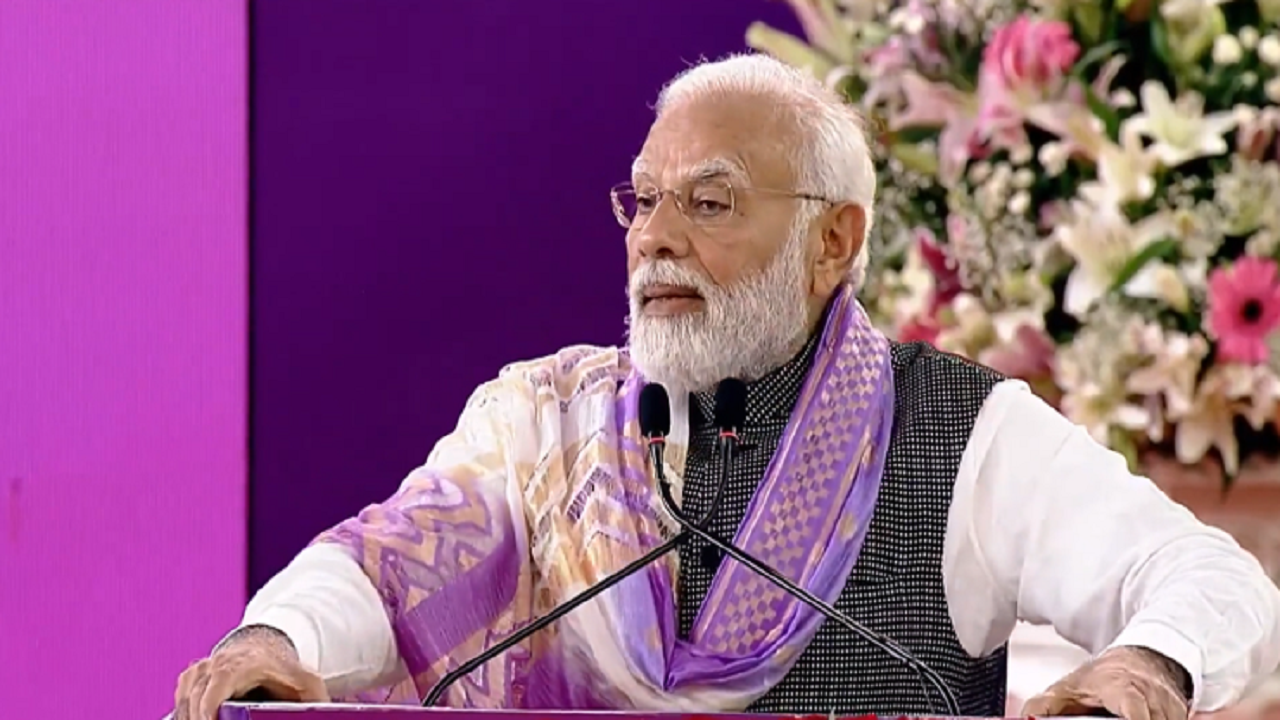
During his address at the 17th Indian Cooperative Congress, Prime Minister Narendra Modi emphasized that his government is committed to the agriculture sector and farmers, allocating an annual budget of over Rs 6.5 lakh crore. He emphasized that his government is focused on delivering tangible results rather than making empty promises, taking a subtle dig at the Congress party's election guarantees.
The Prime Minister urged cooperatives to shift their focus from politics to becoming agents of social and national progress. He encouraged them to embrace transparency, corruption-free governance, and the extensive utilization of digital tools.
During his address, Prime Minister Modi urged cooperatives to contribute to increasing the production of oilseeds and pulses, with the aim of achieving self-sufficiency in cooking oils for the country. He also took the opportunity to highlight the accomplishments of his government over the past nine years in the agricultural sector. The Prime Minister emphasized that the government has successfully provided fertilizers at lower prices compared to other countries, procured substantial quantities of grains at Minimum Support Prices (MSP), and directly deposited significant amounts into farmers' bank accounts through the PM-KISAN scheme. He further revealed that the government's annual expenditure on agriculture and farmers exceeds Rs 6.5 lakh crore on average.
Addressing the Indian Cooperative Congress. The sector plays a vibrant role in the country's progress. https://t.co/7VH4XNbqTQ
— Narendra Modi (@narendramodi) July 1, 2023
Prime Minister Modi emphasized that the government is committed to ensuring that every farmer in the country receives around Rs 50,000 annually through various means. He declared this as a guarantee provided by the BJP government, distinguishing it from mere promises. He elaborated on the significant support given to farmers over the last nine years, with over Rs 15 lakh crore being provided through the procurement of their produce at Minimum Support Prices (MSP). The Prime Minister highlighted the efforts to keep fertilizer prices reasonable, with Rs 10 lakh crore being spent on fertilizer subsidies to counter rising global rates. He compared the prices of urea in India to other countries, showcasing the magnitude of the government's efforts to improve the lives of farmers.
Additionally, he mentioned the direct transfer of Rs 2.5 lakh crore to farmers' bank accounts under the PM-KISAN scheme, highlighting the substantial increase in the agricultural budget compared to previous years.
The Prime Minister also mentioned recent initiatives, including a Rs 3.7 lakh crore package for the fertilizer sector and an increase in the sugarcane fair and remunerative price (FRP) for farmers. He acknowledged the crucial role of dairy cooperatives in making India the world's leading milk producer and highlighted the contribution of cooperatives in making India a top sugar-producing country.
Prime Minister Modi highlighted the significant support provided by cooperatives to small farmers across the country. He emphasized the government's commitment to strengthening the cooperative sector as part of the nation's development goals. The Prime Minister noted the establishment of a separate ministry and allocated a budget for cooperatives, giving them a platform comparable to the corporate sector. He discussed measures such as reducing tax rates and strengthening cooperative banks. Modi praised the Digital India campaign for enhancing transparency and benefiting the underprivileged while promoting a corruption-free environment. He urged cooperatives to embrace digital transactions, stating that it would increase transparency, efficiency, and competition in the market.
The Prime Minister highlighted the computerization of over 60,000 Primary Agricultural Credit Societies (PACS) and encouraged cooperatives to leverage technology for the nation's benefit. He urged cooperatives to contribute to record exports and emphasized measures taken to support sugarcane farmers, including a Rs 20,000 crore package for clearing farmers' dues and prioritizing ethanol blending.
He expressed confidence that cooperatives would become a powerful force in India's economy and emphasized the need to build self-sufficient villages based on the cooperative model. The Prime Minister suggested that cooperatives should prioritize social and national policies over politics and enhance cooperation among themselves.









